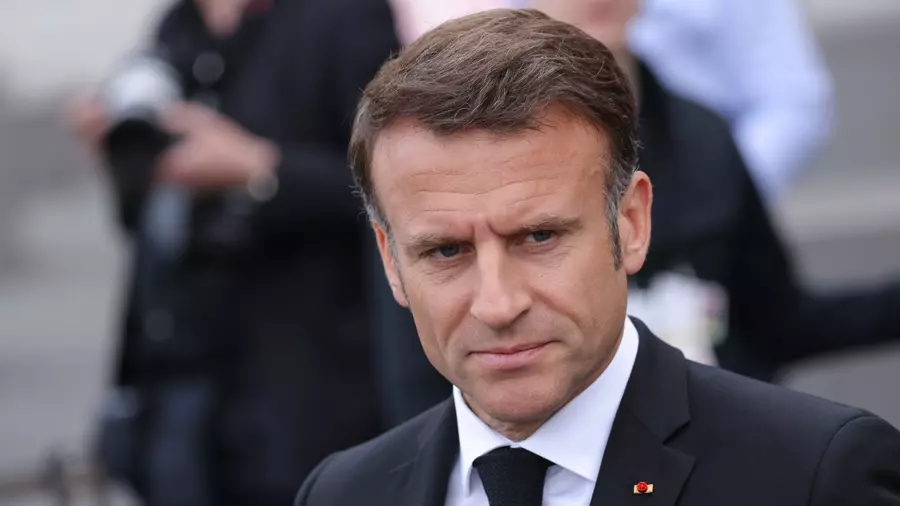The political experiment conducted by French President Emmanuel Macron has backfired spectacularly, resulting in a hung parliament and calls for his resignation from the leader of the leftist coalition, Jean-Luc Melenchon. Macron’s gamble to deny the anti-establishment National Rally party a majority in the second round of voting ended up alienating both left and right voters, leaving the French with a parliament that is unable to pass legislation without forming precarious coalitions on a case-by-case basis.
The situation echoes a lesson from my childhood, when I visited a monument in Vancouver commemorating a legendary race between two athletes vying for the title of first man to run a mile in under four minutes. The statue depicted Roger Bannister and John Landy in a thrilling finish, with Landy glancing back at his rival just as Bannister overtook him to win the race. My father taught me that it was important to focus on your own path and not worry about others, which seems like a lesson Macron could have benefited from learning.
Instead of running his own political race, Macron decided to form an unlikely alliance with the anti-establishment leftist coalition, led by Melenchon. They agreed to band together in order to block the parliamentary leader of the National Rally party, Marine Le Pen, from obtaining a majority. This strategy ultimately backfired, as the number of districts left with only two anti-establishment candidates ended up being higher than those where Macron’s “Together” party faced off against the National Rally.
As a result, none of the major parties has enough votes to reach a parliamentary majority on any given issue without forming coalitions that may be short-lived or even hostile. This raises questions about the effectiveness and stability of the French government in the coming months.
Already, Macron’s Prime Minister Gabriel Attal has offered his resignation, although he may remain in office until a new government is formed. The nature and leadership of this potential new government are uncertain, as the relationships between parties born out of desperation and opportunism do not have a strong history of success.
Melenchon, whose New Popular Front coalition has the most seats among the leftist bloc, has demanded that Macron offer his team the prime ministership or else step down himself. This reflects Melenchon’s growing confidence and desire to assert control over the French government in light of Macron’s failure to deliver a majority for either establishment party.
Perhaps the most concerning outcome of this political mess is that it highlights the disconnect between the popular vote and parliamentary representation in France. Despite winning over 10 million votes, more than double the number garnered by Macron’s “Together” party or the leftist coalition, the National Rally still finds itself without a majority in the new parliament. This raises significant questions about the true representation of the French people’s will and the overall health of their democracy.
In conclusion, Emmanuel Macron’s political experiment has not only failed to deliver the desired outcome but has also left the French government in disarray, with no clear path forward for establishing a stable majority or ensuring that the will of the people is truly represented in parliament. By focusing too much on his competitors and not enough on running his own race, Macron has created a situation that may ultimately lead to his own downfall.

